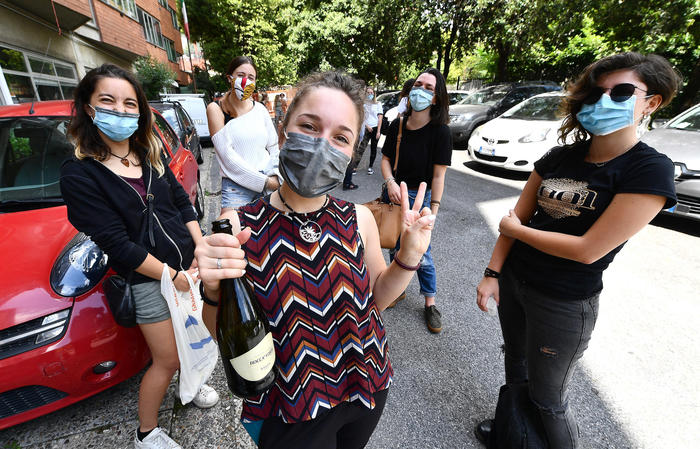(ANSA) - ROME, MAY 14 - The countdown starts: minus one month to Maturity 2021, whose start is set for Wednesday 16 June. A period in which, traditionally, for high school students, school is practically over and one can concentrate almost exclusively on the exam. This year, however, there seems to be a problem. Indeed, more than one: many teachers, even in the last year, are taking advantage of these weeks of face-to-face lessons to recover homework and questions left behind because of Dad. A thousand graduates interviewed by Skuola.net say this: 6 out of 10, in fact, complain that their teachers are concentrating more on evaluations than on supporting the preparation of the June test. But, in general, workloads are challenging for practically everyone:65% believe the amount of checks "excessive", another 23% "feasible but undoubtedly intense". A situation that is creating many headaches for the students, since only 3 out of 4 are managing to carve out time to review the materials for the exam; the others, on the other hand, are forced to study in order to make up for some too many deficiencies (13%), or even to try to avoid not being admitted to the final exam (10%). A 'refinement' that, moreover, often has to be carried out independently: only 1 maturing out of 4 is doing maxi-oral simulations (the only test of this year's exam) with most of the professors; another 30% must be satisfied just of some teacher of good will; 38%, on the other hand, say they have been abandoned to their own destiny.There are also few teachers who are willing to support individual children, perhaps - if inclasse they must focus on the latest assessments - beyond school hours: in most cases (55%) it is really difficult to find one willing to answer their own doubts about the exam .
A not insignificant obstacle, given that the outcome of the high school diploma seems to be very dear to many young people. Not so much for the success, as for the mark written on the diploma. For 1 in 4 it is even essential to get the most out of it, especially in view of university enrollment; for 33% it is important for a matter of personal pride; on balance less than 1 on 2 will not pay too much attention to the numerical data.
Two weeks after the delivery of the paper, the high school students are divided into 3 practically equal parts: those who have practically finished it, those who have just started and those who, even, have yet to start it.
Same thing for the student curriculum, great news this year. A part, in theory, should fill in the candidate. But, although the Ministry platform on which to upload information has been active since the beginning of April, to date only 34% have already done so; 41% will do so later. The others either have nothing to report in addition to what was reported by the school (12%) or were not even aware of its existence (13%).
Too late, however, to remedy the shortcomings on the PCTO (the exalternanza school work). And for 1 in 3 there will be some thrills: 19% did not complete the hours provided for their address, 13% said they did not do them at all. For them it will be difficult to understand how the commission will be regulated: the school-work alternation is not a requirement for admission to the exam but it will still have to be accounted for during the interview. A passage that the students are facing with various strategies: a good part already has a draft report of the activities in mind (33%), someone else (16%) will insert it directly in the paper, most (38%) will prepare some speech just before the 'oral. In the end, only 1 in 10 fear the 'silent scene'. Even the hypothetical questions of Civic Education - foreseen by theordinance on maturity but based only on the topics actually dealt with - they are shaking the eve of the boys: only 44% have everything very clear while 40%, pure having detailed it at school, do not feel ready to respond; always better than the 16% who have not faced it almost at all. Even if the part that worries the most is another: the multidisciplinary questions at the discretion of the professors, indicated as enemy number one by 60% of the students. This is the only portion of the interview that is totally unpredictable, with the candidate who must be able to develop a multidisciplinary treatment starting from a starting point (photo, document or text in the most common forms) proposed by the commission, revealed only at that moment.
(HANDLE).

